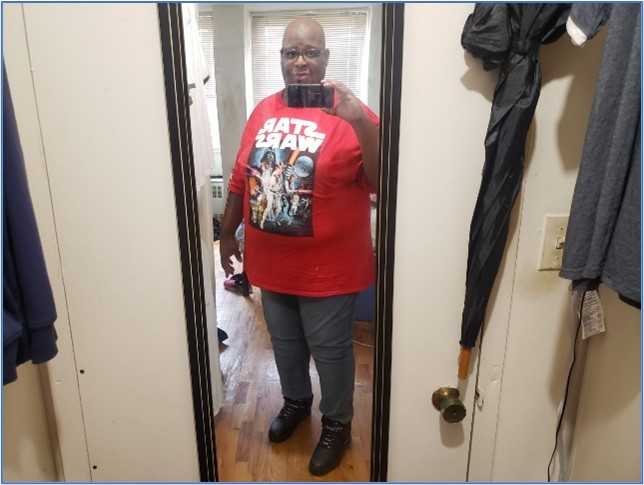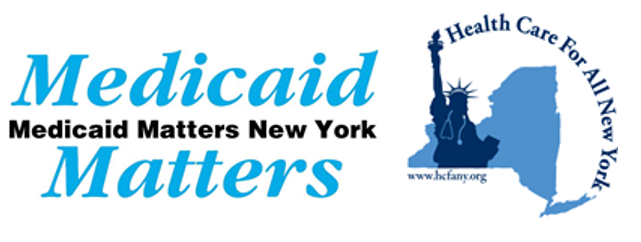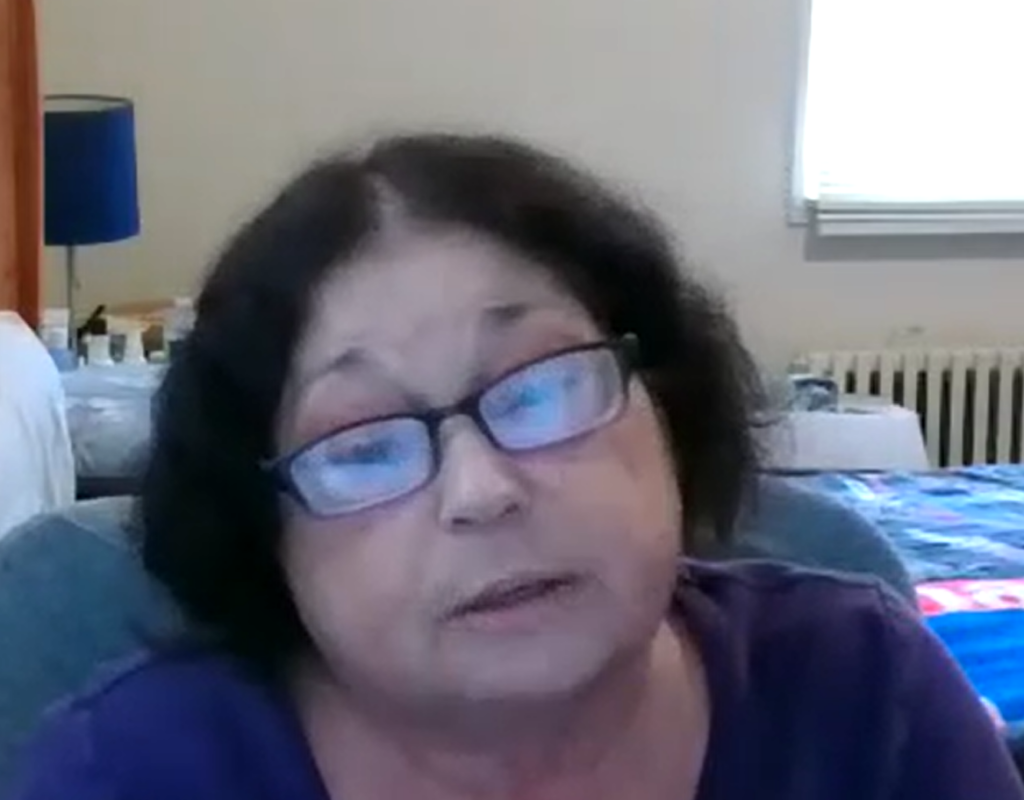On January 14th, Governor Hochul delivered her 2025 ‘State of the State’ address. HCFANY commends the Governor for proposing sweeping protections for consumers and patients across the State. Her proposals feature many HCFANY advocacy goals falling under six categories: (1) mental health, (2) reproductive health, (3) chronic health conditions, (4) prescription drugs, (5) dental health, and (6) improving insurance coverage. Her proposals plan to:
(1) Mental Health
- Implement a teen mental health first aid program to equip youth with the ability to respond and address signs of mental health and substance use distress for themselves and their peers.
- Introduce an initiative that connects youths to critical mental health resources during state-funded after-school programs.
- Allocate new resources to strengthen compliance oversight and investigate more insurance complaints.
In New York, youth struggling with mental health has been on the rise; in 2023, 48 percent of teens experienced depressive symptoms ranging from mild (27 percent) to severe (11 percent) in New York. Through these proposed initiatives, the Governor hopes to provide basic skills for youths to support themselves and their peers and reduce the impacts of bullying and social violence. Additionally, the State aims to partner with the State University of New York to match social work graduate students with state-funded after-school programs to complete their required fieldwork and support vulnerable youths.
The current law requires insurers to offer an accessible network of providers, pay at least Medicaid rates for in-network services, and reimburse school-based mental health services at Medicaid rates. Through her proposal, the Governor hopes to improve compliance oversight and investigate and find solutions to mental health care access needs and complaints.
We commend the Governor for her continued commitment to protecting youth mental health and proposing reforms to improve coverage for mental health care.
(2) Reproductive Health
- Expand funding for reproductive health care facilities to enable renovations and equipment upgrades to help providers deliver the full range of comprehensive services.
In New York, reproductive health care facilities often lack the proper infrastructure to provide the full range of comprehensive services needed. The Governor hopes to support these facilities through the Reproductive Freedom and Equity Grant Fund and security grant funding to ensure a broader network of providers can deliver quality reproductive health care throughout the State.
HCFANY is excited to see the Governor’s continued effort to ensure New Yorkers have access to reproductive care. Earlier this year, she announced a first-in-the-nation initiative to provide 20 hours of paid leave for prenatal care for privately employed, pregnant New Yorkers, both full-time and part-time.
(3) Chronic Health Conditions
- Reduce cost barriers for Medicaid patients at high risk of major cardiovascular events, who need access to Glucagon-like petitde-1 (GLP-1) receptor agonists—more popularly known by their brand names, Wegovy or Ozempic.
- Expand eligibility for Essential Plan members to receive air conditioning units to protect themselves during severe heat events. New eligibility will cover those with diabetes, cardiovascular disease, hypertension, or those who are pregnant.
Obesity is a significant concern for New Yorkers; in 2023, around one in three New Yorkers were found to be obese. This chronic condition increases the risk of diabetes, asthma, cardiovascular disease, cancer, and other chronic health conditions. Recently, GLP-1s have transformed obesity treatment, but many face cost barriers to this life-saving treatment. The Governor proposes to provide greater access to GLP-1 drugs for Medicaid members at high risk of cardiovascular events and pressure drug companies to lower prices.
The effects of climate change have increased the severity, duration, and frequency of extreme heat events, also known as heat waves, and these events are deadly for vulnerable populations with chronic health conditions. Heat-related deaths are more likely to occur at home, highlighting the importance of home cooling access. Last year, the Governor implemented an initiative to distribute air conditioners for Essential Plan members whose asthma poses a significant medical risk. Her proposal builds upon this by expanding eligibility to more individuals whose symptoms worsen through these heat events.
HCFANY applauds the Governor’s outstanding support for New Yorkers with chronic health conditions. These initiatives build upon the first-in-the-nation diabetes initiative that HCFANY supported, eliminating co-pays for insulin covered by state-regulated insurance plans, which went into effect this year. As of 2023, 1.8 million New Yorkers have been diagnosed with diabetes, and this initiative is estimated to save eligible New Yorkers up to $1,200 per year totaling around $14 million in 2025.
(4) Prescription Drugs
- Seek approval through the Food and Drug Administration’s Section 804 Importation Program to import low-cost Canadian drugs.
- Hold pharmacy benefit managers (PBMs) and drug manufacturers for any hidden, unnecessary cost they add to drug prices.
The United States spends more on prescription drugs than any other peer country—like Australia, Canada, and France—with prices around two to four times higher for major brand-name drugs. A nationwide survey finds that 82 percent of Americans believe the cost of drugs is unreasonable, and over half of Americans worry about being able to afford their family’s prescriptions. Last year, a bill aiming to implement prescription drug importation program to lower costs (A7954A/S604) was passed in the Senate but fell short in the Assembly. Luckily, the Governor plans to participate in the Food and Drug Administration’s Section 804 Importation Program, which achieves a similar goal in importing low-cost drugs from Canada.
Additionally, the Governor is seeking to introduce a first-in-nation initiative to improve transparency and hold PBMs and drug manufacturers accountable to uncover any unnecessary costs they add to drug prices.
(5) Dental Health
- Set minimum standards for dental plans available through New York’s insurance marketplace, New York State of Health (NYSOH).
- Expand the scope of practice for dental hygienists.
- Direct health plans to improve the availability of dental care.
It is well documented that dental care is essential to oral health, yet many New Yorkers face substantial barriers to accessing essential oral health services. HCFANY is thrilled to see the Governor’s proposal announcing plans to make minimum standards for dental plans available through New York’s insurance marketplace, New York State of Health (NYSOH)—an initiative that HCFANY has been advocating for.
The Governor also aims to introduce legislation to expand the scope of practice for dental hygienists and direct health plans to improve the availability of dental care.
(6) Insurance Coverage
- Identify and address equity gaps in quality and outcome measurements for those on Medicaid Managed Care plans.
- Create an integrated care system for Medicaid patients.
- Perform a comprehensive review of the State’s network adequacy standards and increase enforcement of plan compliance.
In 1994, New York implemented Quality Assurance Reporting Requirements (QARR), which measure and report on health care quality. Though current Medicaid Managed Care (MMC) plans meet or exceed national benchmarks for quality measures, these measurements from QARR cannot identify health inequities within the population. The Governor has proposed to direct MMC plans to analyze gaps in quality and outcomes within their populations, as well as develop strategies to address gaps, including creating a value-based payment.
New York is one of the three states where Medicaid patients can enroll in a separate MMC plan for long-term care along with their medical care coverage, called a partial capitation plan. Many also have separate Medicare coverage. This fragmentation reduces the ability for effective, person-centered, coordinated care. Through her proposal, the Governor plans to work with MMC plans to increase the availability and adoption of integrated care options and limit non-integrated offerings.
Lastly, in New York, network adequacy requirements have not been updated in decades despite variations in health care access across the state. Network adequacy standards require that health plans meet basic standards for members’ access to in-network providers without unreasonable delay or excessive travel. Currently, consumers are often directed to unavailable or out-of-network providers, which leads to untimely care and an increased risk of incurring medical debt. The Governor’s proposal intends to instruct the Department of Health to perform a comprehensive review on network adequacy standards and increase enforcement of plan compliance. HCFANY supports the Governor’s continued investment in proposing initiatives that help protect consumers from incurring medical debt, an issue that HCFANY continues to advocate for.
HCFANY commends the Governor for introducing these initiatives to protect patients and consumers in New York. HCFANY will review the newly released Executive Budget to determine how these proposals will be implemented.
Nancy Rodriguez, a 66-year-old Queens resident, struggles with a number of life-altering cardiopulmonary medical conditions. She works at a doctor’s office despite her disability, to supplement her modest Social Security benefits.
Nancy’s total income is about $30,000 a year, including Social Security — too much to qualify for ordinary Medicaid. Since 2017, she has used the Medicaid Buy-in Program for New Yorkers with Disabilities (MBI-WPD) to cover her medications, multiple specialist visits, and hospitalizations.
Still, Nancy has spent years mired in medical debt. In 2020, her medical bills totaled $500,000, including a 13-day hospitalization for COVID. In 2022 she owed $300,000 for a couple of hospitalizations and a surgery.
“For me to be without health insurance is not acceptable, not even for five minutes.”
Under current law, the MBI-WPD program is limited by income, assets, and age. In her FY2024 Executive Budget, Governor Hochul has proposed expanding the program, so that more New Yorkers with disabilities can work and still qualify for Medicaid coverage.
The Governor has proposed removing the age limit of 65, which Nancy says, “would be a godsend for me.” She does have Medicare, but she does not know how she would manage a Medicare Part B premium, a supplemental “Medigap,” and a drug plan which she figures could amount to $300 per month. “I don’t have that kind of money and I work as many hours as I can. It’s very frightening. I lose a lot of sleep over this.“
We look forward to the passage of New York State’s budget including the expansion of Medicaid Buy-in coverage so that people like Nancy will not have to lose sleep over medical bills and can continue to work. Nancy says, “I am very fortunate that I am able to work and I will continue to work as long as I can do it.”
Let’s keep Nancy working and with critical health coverage.
By Heidi Siegfried, Center for Independence of the Disabled in New York (CIDNY)
The Affordable Care Act increased the income eligibility level for adults without disabilities to 138% of the Federal Poverty Level ($1,563 a month) in 2012. Despite this change, Michael Howard, a 40-year-old man with a mild intellectual developmental learning disability, whose income is $300 a month below the Poverty Level, takes $110 out of his bank account every month and purchases a money order. He mails it to the Medicaid office at the World Trade Center. He does this to keep his Medicaid health coverage. He has been doing this for 7 years.
Why was this happening? Because when the new income eligibility limits were adopted, the “old” Medicaid income eligibility standards ($934 a month in 2022) were retained for people who are in the “Aged, Blind or Disabled” Medicaid eligibility category. Thus, Mike must either incur medical bills in excess of $110 or pay into the Medicaid program to meet his Medicaid monthly “surplus”. Without this he will not have health coverage.
With some savvy budgeting, Mike manages to pay his rent, his cellphone bill, and a $230 cable bill. He shops for the foods he likes but with the increase in food prices, he must, at times, put some items back. His budget cannot accommodate the rising cost of food and his out of pocket medical expenses. He uses four fans instead of an air conditioner because he is worried about the extra electric utility expenses. He says that if he had an additional $110 a month, he would like to save it for a vacation. He would like to visit some more states. He says, “Surplus must go.”
The good news is that the Governor and legislature rectified this discrepancy in the New York State budget that was adopted in April of 2022. In 2023, people with disabilities will have the same income eligibility levels as people without disabilities. This month the New York State Health Department is sending letters to people who have a surplus in the Excess Income (Spenddown) Program telling them how to request a recalculation of their income. And people like Mike will not need to decide between paying for basic needs or medical expenses.



Medicaid Matters New York and Health Care for All New York – the two major statewide health care consumer advocacy coalitions – applaud the State Legislature for several historic additions to the adopted state budget for 2021-22 related to funding for public schools and universities, rental and mortgage assistance, assistance to undocumented essential workers and small businesses, and taking some first steps toward restoring progressivity to the state’s tax system. Millions of low-income New Yorkers who rely on our state’s public health insurance programs will benefit from these improvements to the Governor’s initial set of budget proposals.
However, our State leaders failed to break ground in health care, which is disappointing in light of a decade of austerity budgets and the ongoing nature of the COVID-19 public health crisis. Medicaid Matters and HCFANY are specifically concerned about the following issues:
- The arbitrary Medicaid global spending cap was extended for another year. As a consequence, Medicaid continues to be approached with an austerity mindset. For ten years, Medicaid has suffered from unnecessary cuts, impacting access to services for low-income people, families, people with disabilities and communities.
- Public health insurance coverage was not expanded to low-income immigrants who have had COVID-19. Instead, those who are undocumented remain reliant solely on Emergency Medicaid for acute care and charity care programs for ongoing treatment. As a consequence, many will likely forego seeking necessary care, thereby prolonging illness and suffering, risking death, and incurring medical bills they cannot pay.
- The home care crisis and institutional bias remain unaddressed. Home care workers play a vital role in serving and protecting disabled New Yorkers and seniors living independently, a role that became even more critical and evident during the pandemic. However, New York’s failure to invest in home care has created a “worst in the nation” workforce crisis that prevents meaningful access to home care services for thousands of people and results in greater institutionalization.
- This is the first time in decades that New York State has adopted a discriminatory maternity coverage policy. Instead, only citizen and lawfully residing immigrant women will enroll in free (state-funded) Marketplace coverage after their Medicaid ends—continuing a system that allows for disruptions in care.
- No new initiatives were created to address inequities that are wide-spread throughout our state’s public health, health care, and health coverage systems, despite significant federal pandemic-related funds the state has received over the past year to address these disparities. The pandemic has revealed them clearly, and they can no longer be ignored.
On the positive side, we thank both the Governor and Legislature for these new initiatives:
- Eliminating all premiums in the state’s Essential Plan that provides insurance coverage to low-income people and families who are not eligible for Medicaid. This move will enable them to keep medical, dental, and vision coverage in place without financial barriers, an important step during the ongoing pandemic.
- Protecting the financial stability of community health centers and other safety net providers by delaying the implementation of the planned pharmacy carve-out from the state’s Medicaid Managed Care program.
We also acknowledge and appreciate restorations in funding cuts initially proposed by Governor Cuomo that made no sense given our ongoing pandemic:
- An across-the-board Medicaid rate cut that particularly threatened safety net hospitals that serve large numbers of Medicaid and uninsured patients.
- Elimination of Indigent Care Pool funding to public hospitals.
- Cuts to the state’s Vital Access Provider Assistance Program that keeps certain safety net and rural hospitals financially afloat.
- Additional cuts to Article VI public health funding to New York City.
- Allowing insurers to impose restrictions on the ability of doctors to prescribe certain drugs to Medicaid patients (elimination of the provision known as “prescriber prevails”).
- Another 25% cut to home care workforce recruitment and retention money that would have further harmed community-based long-term care.
- Cuts to programs serving adult home residents.
While as a whole and on the surface it may appear that New York continues to meet the needs of those enrolled in our state’s public health insurance programs and the providers they rely on, the 2021-22 adopted budget fails to make needed investments to turn away from austerity politics, protect all immigrants, expand community-based long-term care, and promote health equity. A lack of harm must not be confused with a budget that provides for what New Yorkers need. We can do better, and we must.

